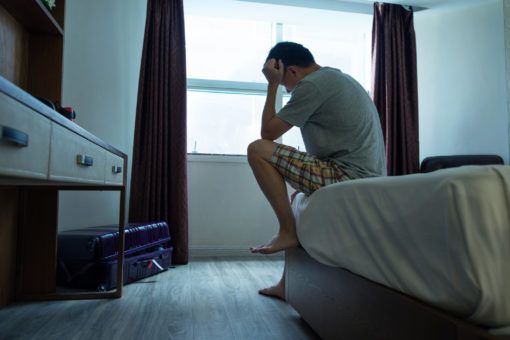Mental health disorders can often be difficult to spot and may take years to diagnosis because they have a plethora of symptoms that usually wax and wane over time, making it seem that the individual may be sick one moment but fine the next. Is this a mental health disorder? Is this a poor adaption to an unhealthy stressor? Will this odd behavior pass? Is the individual just going through a rough patch? Is this just a strange habit? A habit becomes a sign of mental illness once it hijacks an individual’s physical and psychological well-being and interferes with multiple aspects of the individual’s life. In other words, if this habit, stressor or new adaption begins to cause trouble in an individual’s personal and professional life then it may be more than just a pattern; it may be a sign that the individual has a mental health disorder. These habits can take many forms and will be different for everyone. But it is essential to take notice of the patterns that are out of character or the ones that interfere with the individual’s life.
Needing more alone time
Spending time alone is healthy and can be a way to re-focus and re-energize, especially if the individual is an introvert. However, if you start spending so much time alone that you are missing critical social engagements and becoming estranged from your family and friends, then this should be concerning as social isolation is a sign of depression or a sign of a developing eating disorder.
Going on spending sprees
Treating yourself to a new outfit, a vacation or something necessary for your favorite hobby can be healthy and is a form of self-love. However, spending endless amounts of money on frivolous things or spending so much money that you are tapping into your savings or are not able to pay your monthly bills is a red flag. Spending large amounts of cash often manifests in an individual who is experiencing a manic episode, which is a component of bipolar disorder.
Burning the midnight oil
Staying up all night may be necessary to finish a work deadline or complete a college term paper and may even happen if you cannot fall asleep once in bed, but if this becomes a habit, then you may be experiencing mania, depression or an anxiety disorder. Adults should get 7-9 uninterrupted hours of sleep each night and should maintain the same sleep and wake times daily, including weekends.
Needing a drink after work
Sure, attending a happy hour after work and letting loose once in a while can be a way to burn off steam and socialize with coworkers in a neutral environment but if you feel the need to drink every single night after work to decrease your stress levels, this is a problem. Needing a drink regularly can be a sign of underlying anxiety or depression and this behavior can potentially develop into an alcohol use disorder.
Repeating small daily rituals
Kissing your spouse goodbye, checking to make sure you have your keys, double-checking whether your car door is locked are regular daily routines that we all do. However, when we begin to repeat tasks that are usually only done once in a while is a sign that this habit may be more concerning than we assume. Cleaning the shower drains, driving back home to ensure you locked your door, re-arranging your office bookshelf, or making sure your shirt is not inside out are all odd habits then when repeated daily; could be a sign of obsessive-compulsive disorder or obsessive-compulsive personality disorder.
Picking Fights
Arguing with your spouse or a friend on occasion is normal, but if you find yourself more irritable and picking fights regularly, this may be a sign you are experiencing a mood disorder such as depression. Picking fights is not a habit that anyone should deem “normal.”
